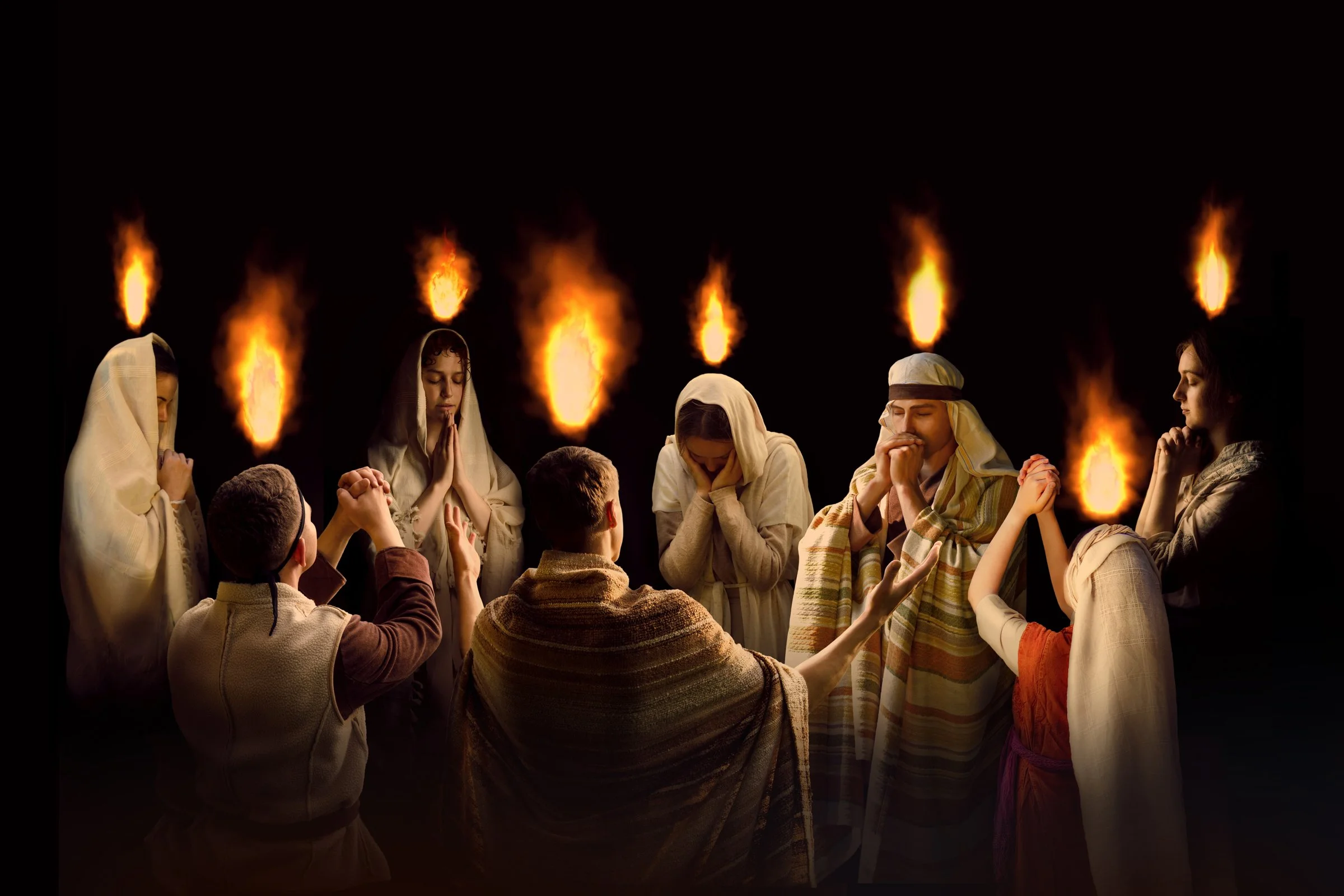The idea of a bodily resurrection is a longstanding belief in Judaism, and there are multiple accounts in the Old and New Testaments. Elijah raised the son of Zarephath and the son of the Shunammite woman. Later, a man rose from the dead when his body touched Elisha’s bones. Jesus raised the son of the widow of Nain, the daughter of Jairus, and Lazarus from the dead. And in the Book of Acts, we read that Paul raised Eutychus from the dead. Even in recent history, we have heard stories of people who died and came back to life.
The Doctrine of Salvation
The word “salvation” in Greek, Soteriology, is derived from two Greek words, Soteria, meaning salvation, and logos, meaning “word, discourse, or doctrine.” Having studied the infinite holy nature of God and the fallen, depraved nature of man, only God could bridge the gap between Himself and His creation. As Jesus said, “With men this is impossible, but with God all things are possible” (Mathew 19:26).
The Imputation and Penalty of Sin
To understand the imputation of sin, we must first recognize what is meant by “original sin,” the first sin of Adam, and the subsequent sinful nature inherited by every person because of his transgression. Our sinful nature is called depravity and consists of four things that are true of every man and woman ever born:
We are void of original righteousness.
We do not possess any holy affection toward God.
The depraved nature is within our hearts.
We have a continuous bias towards rebellion and evil.
The Nature of Sin
There are many expressions in the Bible that define sin. Some include: missing the mark or aim, overpassing or trespassing of a line (to transgress), disobedience to a voice, falling where one should have stood upright, ignorance of what one ought to have known, diminishing of that which should have been rendered in full measure, non-observance of a law, lawless or anarchy (complete disregard for the law), and debt, failure in duty, and not meeting one’s obligation to God. The Bible also uses iniquity, godlessness, wickedness, unbelief, unrighteousness, injustice, and unholiness to define sin.
The Doctrine of Sin
The Greek word for sin is hamartia, and the word for knowledge is ology. Therefore, hamartiology is the knowledge of the doctrine of sin. The scriptures speak continuously of the presence and reality of sin in the world. From Adam’s first sin through the final chapters of Revelation, God speaks of man’s sin and sinful nature. In the Old Testament, we read: “For there is not a just man on earth who does good And does not sin” (Ecclesiastes 7:20). Paul said, “THERE IS NONE RIGHTEOUS, NO, NOT ONE” (Romans 3:10); “For all have sinned and fall short of the glory of God” (Romans 3:23).
The Fall of Man
Theologians often discuss the condition of man in the Garden of Eden before the fall. God is all-knowing, so why did He place the tree of knowledge of good and evil in the garden if He foreknew that man would eat of it? It would seem that God had a purpose for this primitive condition.
The Creation of Man
The first Hebrew word in the Bible is Be-reisheet. This word signifies the very act of creation—God brought “being” into existence from “non-being,” something from nothing. In the beginning (Be-reisheet), the Lord God made all things perfect. Each living organism on earth was divinely planned and woven into the most remarkable fabric of creation, a living tapestry of God’s artwork. Every detail, carefully and methodically executed by the wisdom of God, for a creation without wisdom would be chaos.
Teach Us to Pray
We read, “Now it came to pass, as [Jesus] was praying in a certain place, when He ceased, that one of His disciples said to Him, ‘Lord, teach us to pray, as John also taught his disciples’” (Luke 11:1). Jesus’s response has come to be known as “the Lord’s prayer.” A beautiful declaration that begins with the joy of our heavenly Father, praying for God’s soon-coming Kingdom, asking Him for our daily provision and protection, and closing with an acknowledgment of God’s sovereign Kingdom, His power, and glory. Matthew gives a more extended version of this prayer that Jesus gave as part of the Sermon on the Mount, traditionally believed to be a hill (called the Mount of Beatitudes) near Capernaum on the northern shore of the Sea of Galilee.
The Gifts of The Spirit
Three chapters in the New Testament are dedicated to the gifts of the Spirit, and over one hundred references to Spiritual gifts. These gifts were promised to the church, as we read: “Behold, I send the Promise of My Father upon you” (Luke 24:49). And this promise was fulfilled on the Day of Pentecost, as we read: “And they were all filled with the Holy Spirit and began to speak with other tongues, as the Spirit gave them utterance” (Acts 2:4). The ministry work of the Apostles was marked by the supernatural, and they were given divine power to perform it. Sharing the Gospel, delivering people from bondage, and guiding them in faith and repentance require the Holy Spirit.
The Fruit of The Spirit
The fruit of the Spirit is the fruit of our character as we live a holy life dedicated to the Lord. It is the character of Christ produced by the Spirit of Christ within us and is the greatest treasure of the believer. We read: “The fruit of the Spirit is love, joy, peace, longsuffering, kindness, goodness, faithfulness, gentleness, self-control. Against such there is no law” (Galatians 5:22-23); “(The fruit of the Spirit is in all goodness, righteousness, and truth), finding out what is acceptable to the Lord” (Ephesians 5:9-10); “Now having been set free from sin, and having become slaves of God, you have your fruit to holiness, and the end, everlasting life” (Romans 6:22).
The Holy Spirit
After the resurrection of Jesus, He appeared to the disciples, saying, “Peace to you! As the Father has sent Me, I also send you. And when He had said this, He breathed on them, and said to them, ‘Receive the Holy Spirit’” (John 20:21-22). Fifty days later, on Pentecost (Shavuot), Jesus told His disciples: “You shall receive power when the Holy Spirit has come upon you; and you shall be witnesses to Me in Jerusalem, and in all Judea and Samaria, and to the end of the earth” (Acts 1:8). Notice the Holy Spirit came in two forms: first in peace—the fruit of the Spirit. And then in power—the baptism of the Holy Spirit.
The Works of Christ
Jesus said: “My Father has been working until now, and I have been working” (John 5:17); “I must work the works of Him who sent Me while it is day; the night is coming when no one can work” (John 9:4). Christ’s work of salvation is evident. God Himself, in the Person of His only Son, visited the creation to redeem out of it a people for His own possession. But Christ is more than just our Savior. He is our Prophet, Priest, and King. Each of these in the Old Testament was anointed into their offices with oil, symbolic of the Holy Spirit.













